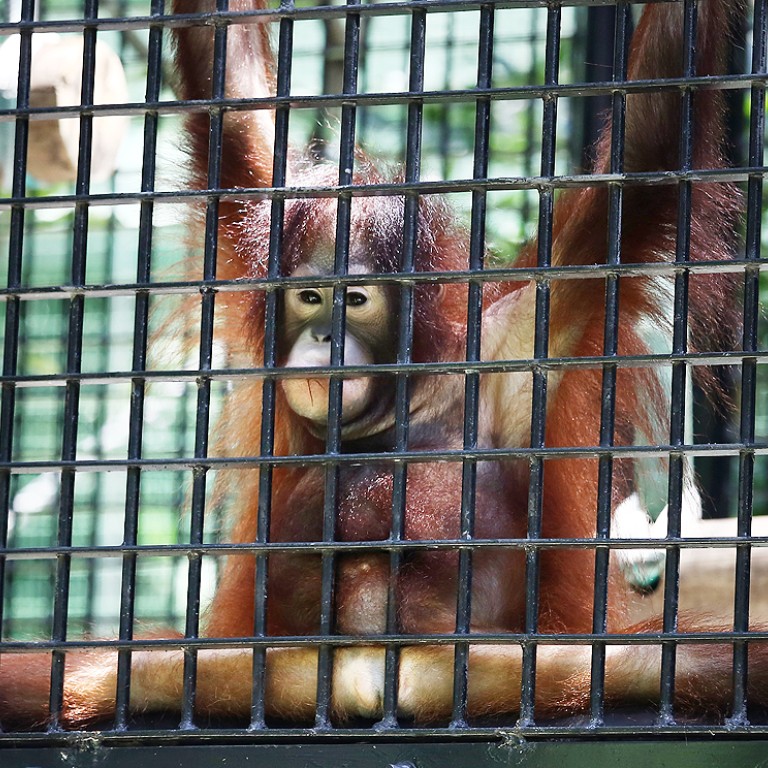
Hong Kong zoo animals 'need laws to protect their psychological welfare'
Hong Kong needs to 'drag its animal protection laws out of the last century', according to an animal-rights academic and barrister.
Hong Kong needs to "drag its animal protection laws out of the last century", according to an animal-rights academic and barrister who says there are no regulations enforcing a "duty of care" on keepers.
Amanda Whitfort says Hong Kong lags behind Europe, the United States, Australia and Taiwan when it comes to legislation that forces zoo managers to ensure the psychological needs of its animals are met.
"The only welfare protection zoo animals have in Hong Kong is not to be treated cruelly. There's no regulations in place to ensure they live a reasonably good life," said Whitfort, an associate professor of law at the University of Hong Kong.
Captive animals, including those at the government-run Hong Kong Zoological and Botanical Gardens, are not protected by legislation beyond an animal cruelty ordinance and a public health law from the 1970s.
Watch: Hong Kong zoo under fire for "outdated" facilities
The zoo has long been criticised. A recent examination of the zoo by the found orangutans in barren, solitary cages, sloths with inappropriate cage furnishings and flamingos packed in together with little space to manoeuvre.
"Prosecutions only take place where there is overt cruelty to an animal, such as a physical attack," Whitfort said. "The fact that the animal is not able to behave in a way normal for its species is not considered cruelty."
The European Union has directives to ensure zoos are regularly inspected and they can be closed down if animals aren't living under "conditions which aim to satisfy the biological and conservation requirements of the individual species".
Hong Kong has no such law.
This means that the local zoo can continue to house animals in a space described by the Society for the Prevention of Cruelty to Animals as "like a menagerie from the last century", in spite of calls to stop bringing in wild fauna.
Mara McCaffrey, founder of NGO Orangutanaid, echoes Whitfort's calls to modernise animal protection laws.
"If there was legislation which addressed things like the mental side of welfare, then it would be so much easier to improve the conditions of animals here," she said.
"Hong Kong zoo is by no means the worst I've seen - and its keepers do seem fond of the animals. But there's a vast room for improvement."
The zoo is at the centre of a second consultation in a decade, with parties being brought in to discuss how best to "enhance" its facilities, the Leisure and Culture Services Department, which runs the zoo, said.
The zoo is home to almost 400 animals - including endangered species such as orangutans and red-handed tamarins - all squeezed into 5.6 hectares of land.
The SPCA has also called for animal welfare laws to be brought into line with those in other developed societies.
It recommends introducing an animal welfare ordinance under which keepers can be prosecuted for committing acts such as withholding water from a dog or holding an orangutan in a small enclosure.
"People care very much about how animals are treated in Hong Kong but sometimes the needs of wild animals get overlooked," Whitfort said. "The public may assume that when the humans are being entertained, the animals are happy, but the two things often do not go together."

